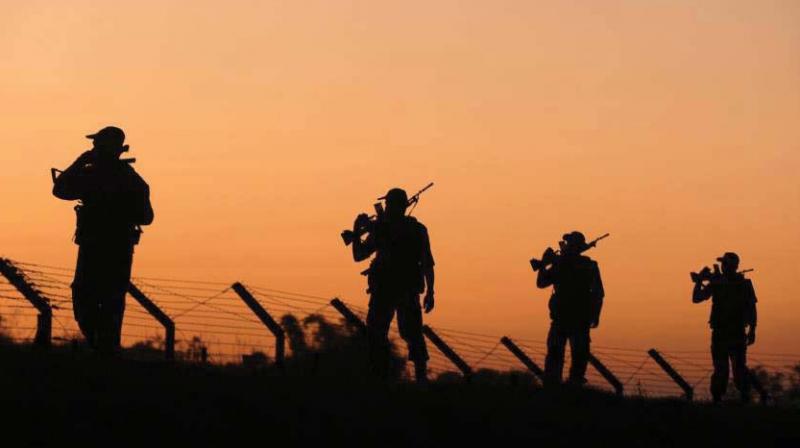View from Pakistan: We are now in a militancy trap
The dirty little secret is not that Pakistan is newly vulnerable, but that Pakistan has always been vulnerable.

Forget Gen. Raheel Sharif this, Gen. Qamar Bajwa that, Nawaz Sharif stupid, Imran Khan clueless. Step back, breathe, and try and trace where this is going. We are sinking into a militancy trap. Because we’re hitting them, the militants, they can’t strike as much and as often as they did or would like. But the pattern is clear. Occasionally, they’ll get past the defences and wreak carnage in the heartland. Parachinar and Quetta are shorthand for violence. If there were no militancy, those areas would still be violent. Parachinar and Quetta are violent because of State failure. And there lies the militancy trap we’re sinking in. Assume Quetta was RAW, Parachinar, the Afghan NDS. Monsters both of them and not very hard to believe. The bald version of why they’re doing it is that they hate us and hate the idea of Pakistan; they will not stop until Pakistan ceases to exist. The slightly more sophisticated version is that the militants are real but India and Afghanistan prefer an unstable Pakistan to a meaningfully stable one. The stronger version of that is a stable Pakistan is inimical to the interests of India and Afghanistan. The milder version is that it’s a game of reciprocity; they hit us because they think we’re hitting them.
Because of the way Pakistan is, because of the resources the State has and the ideas that flow through its people, Pakistan is — and will remain — vulnerable. Not vulnerable in a do-as-you-please kind of way, but vulnerable in the way we’re seeing: this pattern of frequent, sometimes big strikes in the periphery and occasional, mostly small strikes in the heartland. Let’s scratch around the RAW-NDS rabbit hole a bit more. The dirty little secret is not that Pakistan is newly vulnerable, but that Pakistan has always been vulnerable. On India’s side, it was hesitation before — the system’s aversion to dabbling in non-states. In Afghanistan, it was chaos that prevented the coalescing of a tit-for-tat strategy. So, if anything’s changed it’s the willingness of India and Afghanistan to do with enthusiasm now what they did reluctantly before, and their luck in finding these proxies here and now. Terrible, awful, villainous. But that still leaves us with a question: How do we get to zero? From maximum militant violence, the peak between 2007-2011, we’ve arrived at the current point: the occasionally big attack in the heartland and the many, frequently big in the periphery. Put a number on it. Let’s say we’re 70 per cent of the way there; the optimists may say 85.
From here, more of the same won’t — can’t — work. Hammer away at the militant remnants, penetrate the hardest of networks. Not as long as zones such as Parachinar and Quetta exist. And they will always exist. Not those places specifically, but zones that look like them. Zones that much of Pakistan looks like: big populations, limited State, vulnerable to all kinds of non-State and outside influence. The obvious State response, from inside the rabbit hole, is to continue relentlessly with operations — find and eliminate militants wherever they are found — and raise the cost on the outsiders interfering. But that is exactly the militancy trap. To raise the cost on outsiders interfering, we need to retain the types causing them trouble.
But survival of one kind of militancy is survival of other kinds of militancy. To put it another way: hanging on to the anti-India and anti-Afghan lot makes us vulnerable to other kinds of militancy, the kinds that India or Afghanistan could be tempted to use against us. If that’s trite enough — zero tolerance is the only path to zero militants — work through the implications. Somewhere, someone knows the same. Somewhere, someone, here in this land, has decided that it’s a price worth paying — by us. The further depressing possibility is that India and Afghanistan also know the same. They want to hurt us — or at least make our security architects think they are hurting us — because they want to punish us and cause a rethink in policy here. But the hurt and punishment they inflict on us may only cause us to prolong what they’re trying to curb. If we, Pakistan, are unwise, they, India and Afghanistan, are foolish. That’s the tragedy of our region. That’s the militancy trap.
By arrangement with Dawn

